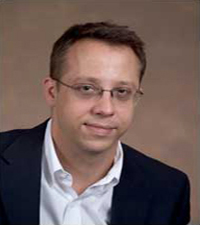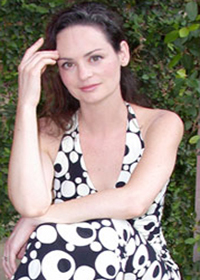
Members of the Florida State community have won top prizes in the First Annual Florida Book Awards. Creative Writing professors James Kimbrell and Julianna Baggott, along with former writer-in-residence Elizabeth Dewberry, former FSU President Stanley Marshall and alumnus Martin Dyckman shot to the top of the award list in the contest, which John Cole, director of the Center for the Book at the U.S. Library of Congress, has called the most comprehensive initiative of its kind in the country.
In the all-around celebration of the year’s best books by Sunshine State authors, gold medals went to Baggott (writing as N. E. Bode) for her children’s book, “The Somebodies” (Harper Collins), and Kimbrell for his book of poems “My Psychic” (Sarabande).
In the general fiction category, Dewberry won a bronze medal for her novel “His Lovely Wife” (Harcourt). In the Florida nonfiction category, Stanley Marshall on a bronze medal for “The Tumultuous Sixties: Campus Unrest and Student Life at a Southern University” (Sentry). Dyckman, who graduated from FSU in 1957 and worked for the St. Petersburg Times for 46 years before retiring, also won a bronze in the same category for his biography of Leroy Collins, “Floridian of the Century.”

Spearheaded by FSU’s Program in American and Florida Studies, the contest recognizes, honors and celebrates the best Florida literature published the previous year. It is co-sponsored by the Florida Center for the Book, State Library and Archives of Florida, Florida Historical Society, Florida Humanities Council, Florida Literary Arts Coalition, Florida Library Association, “Just Read, Florida!,” Governor’s Family Literacy Initiative, Florida Association for Media in Education, Florida Center for the Literary Arts, and Florida Chapter of the Mystery Writers of America.
Submissions were read by seven juries of three members each nominated from across the state by co-sponsoring organizations.
“We hope this project serves as a model nationwide,” said FSU’s Wayne Wiegand, a professor of library and information studies and of American studies, who serves as director of the Florida Book Awards.
“Models matter,” Wiegand said, particularly in the nation’s fourth-largest state. After all, he resolved to help create the Florida competition after visiting the Commonwealth Club of California, home to that state’s annual book awards program for 75 years. In the club’s permanent display of winning books was John Steinbeck’s “Grapes of Wrath.”
“Proof positive of the treasure that such initiatives may uncover,” Wiegand said.
Coordinating the competition with Wiegand is John Fenstermaker, director of the Program in American and Florida studies at FSU-through which all entries must pass-and chair of the Book Awards executive committee. He declares the project “an extraordinary example of cooperation between our program and the principal organizations in the humanities in Florida.”
FSU and other co-sponsors will showcase the books throughout the year in various ways: permanent, autographed library displays of “Gold Award” and “Silver Award” recipients, profiles of the winning authors and books in the prestigious Florida Humanities Council “Forum,” and readings, book fairs, posters and more. The competition phase concludes in early March with the announcement of up to five finalists in each category: general fiction, children’s literature, young adult literature, Florida non-fiction, poetry, popular fiction and Spanish language works.
Down the road, Wiegand and Fenstermaker envision winning entries serving as subjects in academic courses and helping in other ways to call attention to contemporary Florida book culture and to broader issues in Florida studies.
To learn more about Florida Book Awards, visit: http://www.fsu.edu/~ams/




